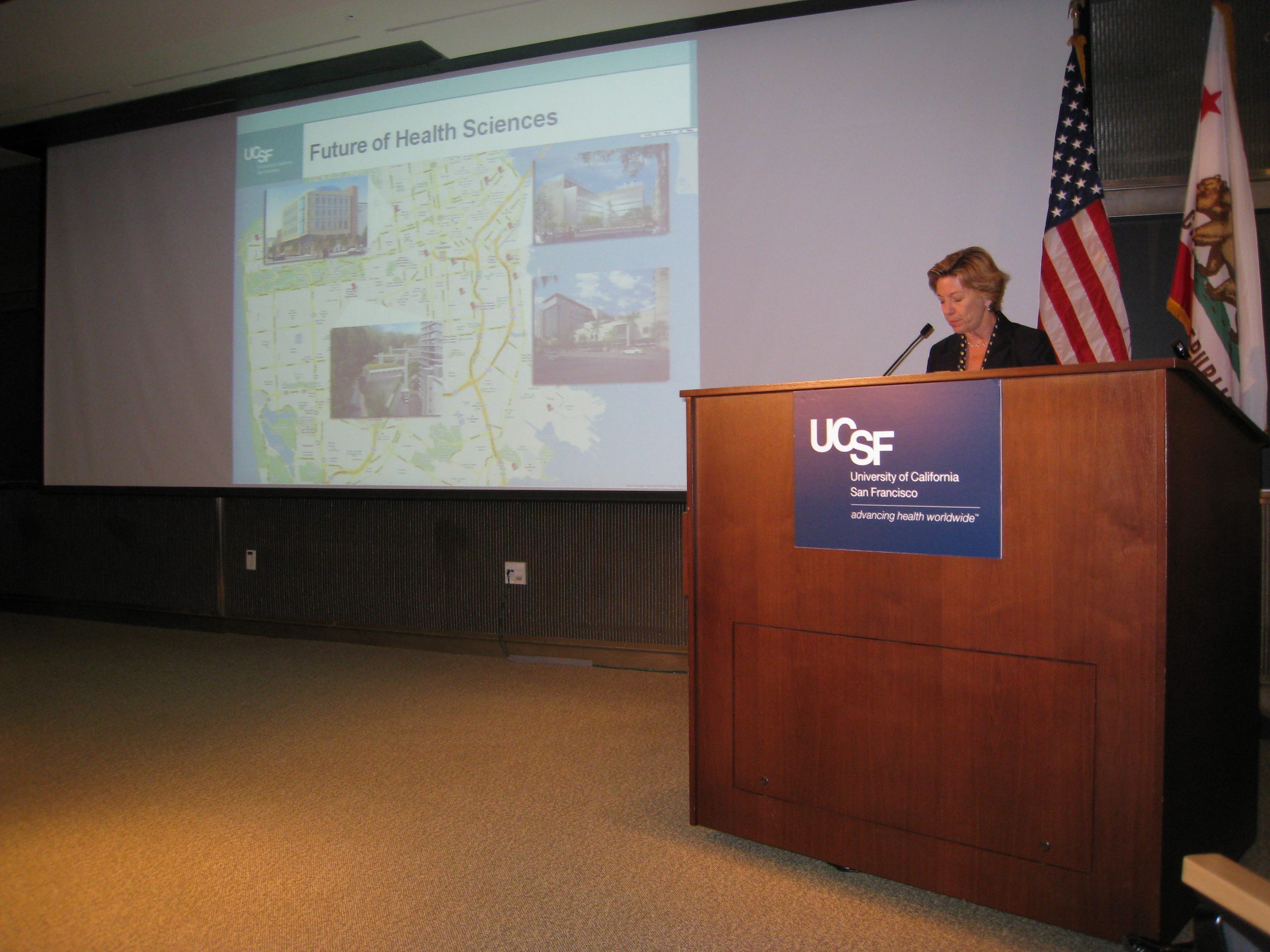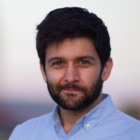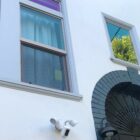The University of California, San Francisco, is planning further expansion at the Mission Bay medical campus, with a medical center, a cardiovascular building and a neuroscience building next slated for construction.
The new medical center will include a 183-bed children’s hospital with urgent, emergency and pediatric primary care, a 70-bed adult hospital for cancer patients and a women’s hospital devoted to cancer care, specialty surgery and a 36-bed birth center.
Construction on the new medical center to the south of the buildings currently at the Mission Bay campus, began in May and is expected to be completed by late 2014.
The school presented details on its next growth phase as UCSF Chancellor Susan Desmond-Hellmann shared a new report on the economic impact the university has had on the city.
The report, published by Economics & Planning Inc., said the university contributed $6.8 billion to the Bay Area economy during the 2008-2009 fiscal year.
The report was commissioned by the university for community groups, many of which have questioned the economic impact of UCSF. The report was also targeted to get the attention of Sacramento legislators as state university budgets are being pared back.
“UCSF is the second top employer in San Francisco and fifth overall in the Bay Area,” Desmond-Hellmann said at a Friday press conference. The report notes that UCSF employs more than 22,000 staff and 4,400 students — but the effects are much deeper when measuring the economic ripple effects in the private sector.
The City and County of San Francisco is the top employer in the city.
Desmond-Hellmann said the number of people employed at UCSF has had a broader economic impact on the Bay Area by providing thousands of jobs at its campuses and hospitals — 20 sites just in San Francisco — with half of its graduates remaining in the Bay Area.
The university also says it has provided thousands of jobs during construction of the Mission Bay campus, and will do so again during future construction.
The evolving medical school campus was the site of controversy even before construction started early in the decade. In 2001 the San Francisco Sun Reporter criticized the university, saying it had not kept promises to provide jobs for minority contractors. More than 100 people stormed the job site, protesting that UCSF had not met an agreement with community organizations.
Another part of the report explains the impact that the university has made on biotechnology in the city. UCSF has been the source of many startup biotech companies, 27 of them at the Mission Bay campus. The university “has diversified the San Francisco economy,” said Ted Egan, chief economist for the city.
The report said San Francisco’s share of Bay Area biotech space has been steadily increasing since 2000, when, 1.3 percent of biotech space was located in the city. In 2009, it had increased to 6.1 percent.
The chancellor said the growth of UCSF stems from the “excellence and quality of the medical center,” funding from the National Institutes of Health and philanthropy. Donations make up 10 percent of UCSF revenue compared with 7 percent from state funding.










